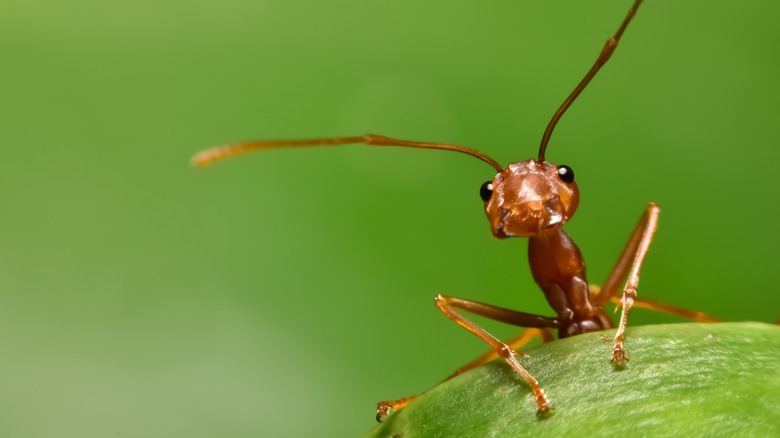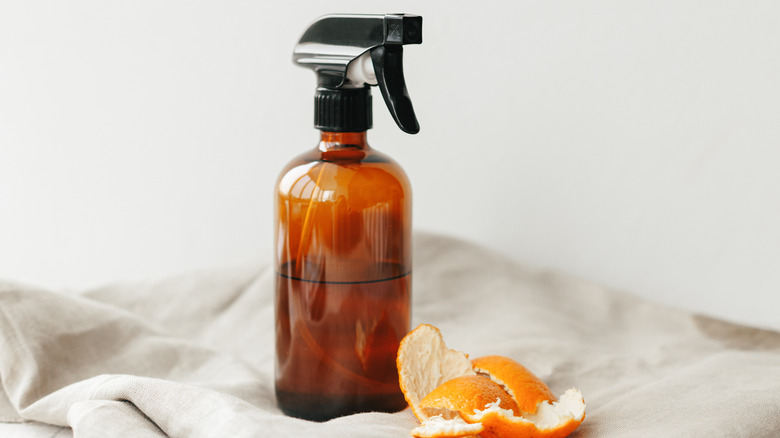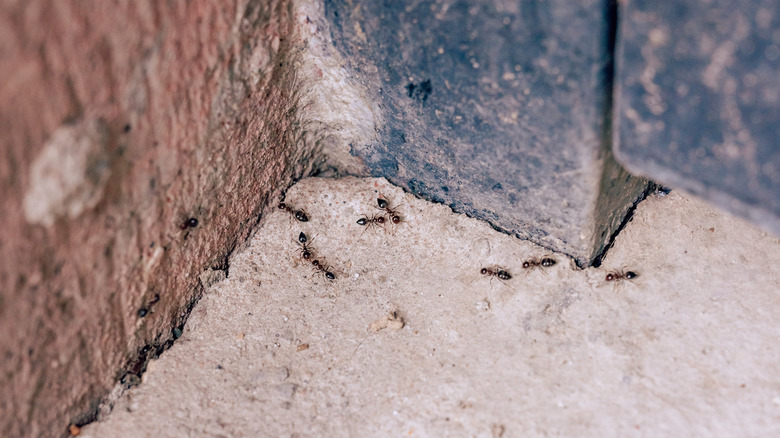The Simple 4-Ingredient Ant Killer You Can Make At Home
We may receive a commission on purchases made from links.
If you're looking for the quintessential example of an uninvited houseguest, look no further than the ant. They're fast, efficient, work well as a team, and are incredibly tenacious. These arthropods might make an unannounced arrival at your home for several reasons, notes The Conversation, but mainly it's in search of food, water, or a new place to set up a nest. Ants are also known to invade a dwelling if they're trying to escape environmental stressors, like extreme heat or cold, or a seemingly never-ending rainy season. While annoying, ants aren't technically that bad to have around — they're kind of like the trash collectors of the insect world, per Science Direct.
However, even though they're beneficial in the natural world, that still doesn't mean you want them in your home. Bug sprays can contain chemicals, boric acid, or borax, which aren't just harmful to the ants — they can also be toxic to pets and people. Even some ant sprays that claim to be non-toxic still have specific instructions on how to use them. While there are multitudes of different all-natural remedies to be found on the web, we've found a simple recipe with only four components that can help evict these bugs and keep them from coming back.
An effective and eco friendly ant spray
The Soccer Mom Blog explains that you can create your own ant spray using a few household staples. It's super simple, fast to make, and most importantly, highly effective at getting these little guys to stop moving.
For this particular recipe, you'll need two tablespoons of baking soda, two tablespoons of dish soap, two cups of apple cider vinegar — which is also good for disposing of houseflies – and some water. You'll also need a mixing bowl and a spray bottle that is designed to hold chemicals and solvents, per The Everyday Cheapskate. Industrial spray bottles can be purchased online or at your local home improvement store.
Because vinegar and baking soda will cause a foamy reaction, it's best to mix this brew in your kitchen sink. Once it's settled, pour it into your spray bottle and fill the remainder with water. Baking soda actually dries ants from the inside out, writes Western Exterminator, the vinegar temporarily masks the ant's scent trail, while the dish soap breaks down their exoskeletons and suffocates them, via PestWeek.
It's all about location
Because there is nothing perishable in this all-natural ant spray, it won't suddenly start to spoil. Though it is recommended to toss it if it's been sitting under your sink for more than a year, notes The Soccer Mom Blog. After spraying an active ant trail, be sure to remove whatever it is they were going after. You'll also want to spray in any places where they first began to show up. This includes, but isn't limited to, crevices and cracks around windowsills, door frames, and baseboards, per Home Depot.
For a really persistent ant problem, you might need to take it one step further and look into liquid bait traps. By adding liquid bait in an area that's out of the way of kids and pets — usually outside where you think the ants might be entering — the insects will seek out the sweet stuff and take it back to their nest, and the rest is history. It's just another preventative measure to ensure that you're not sharing your dinner plate with a few random stragglers.


